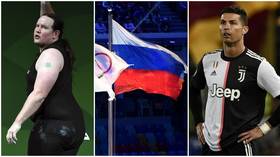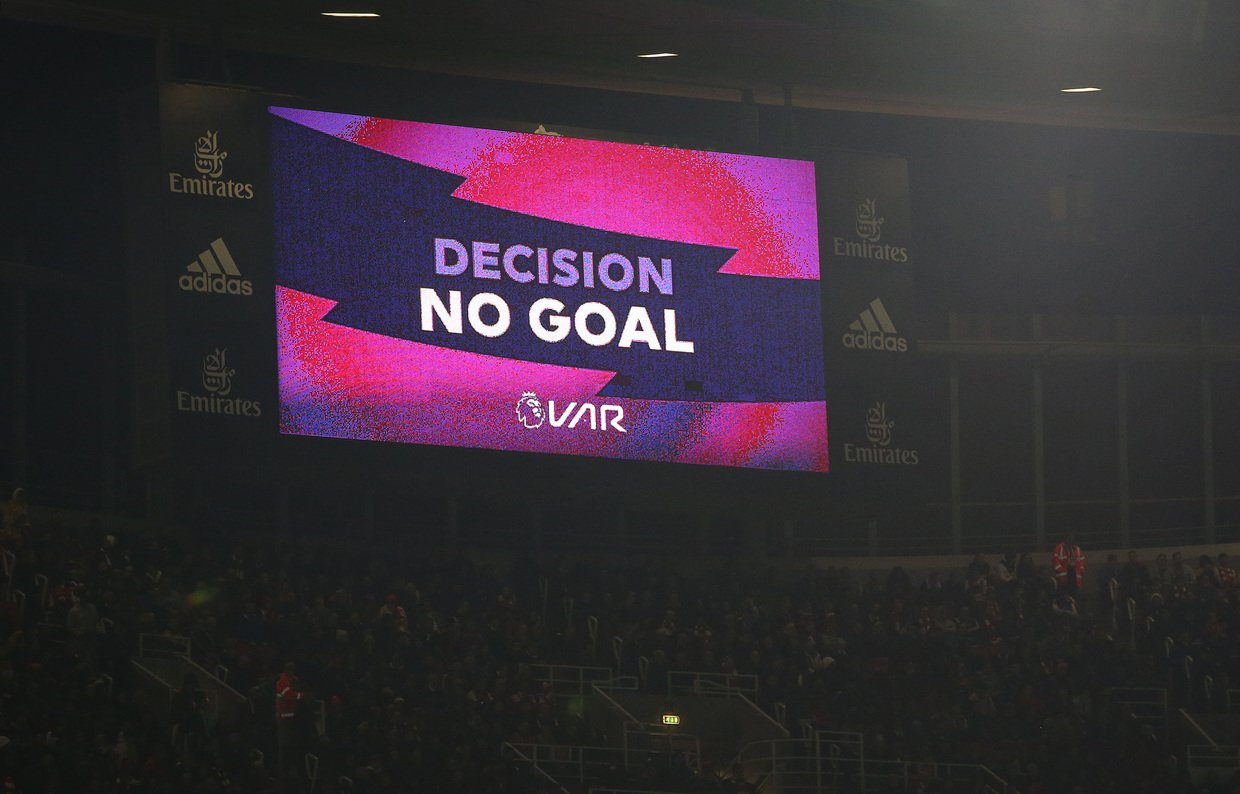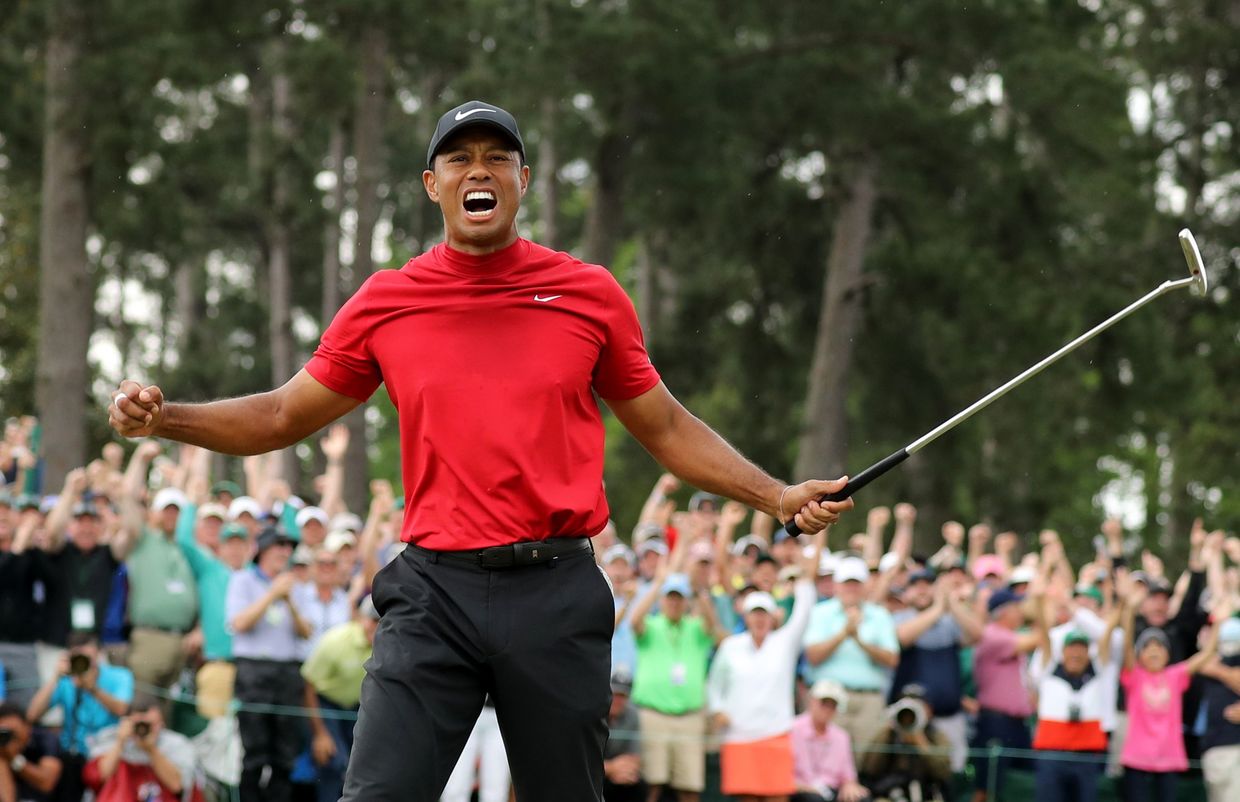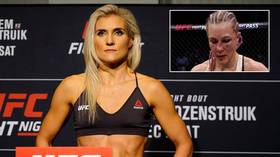Transgender debate, wiping Russia off the sporting map, & replacing retiring legends: Five big issues for sport in the next decade

The world of sport enters the next decade having left behind some incredible moments in the 2010s, but alongside the greatness there are concerns looming large over key issues which must be tackled in the coming years.
Here, we look at five of the most prominent areas that sport will need to face down – and overcome – in the course of the 2020s.
1. THE TRANSGENDER DEBATE
An increasingly controversial topic in sport and society, the debate on transgender athletes looks set to become even more heated as we move into the next decade.
As gender lines are increasingly and even more bafflingly blurred in society, the effect on women’s sport in particular could be catastrophic.
We've already seen cases such as weightlifter Laurel Hubbard winning major regional titles as the New Zealander born as Gavin fights to reach the Tokyo Olympics, while in US college sports transgender runner Cece Telfer made the headlines by picking up a national title.
Also on rt.com ‘Robbing women of opportunities’: Fury after transgender NZ weightlifter wins double goldCases such as these may seem isolated, but the danger is very real that as the gender debate increasingly pervades society we will see barriers being eroded in sport which protect female athletes.
A study at two Swedish universities has found that hormonal therapy during the gender adjustment process does little to reduce the strength of trans women, meaning inherent benefits can remain for trans athletes.
World Athletics (formerly known as the IAAF) has spoken about ensuring that "eligibility is based on biology and not on gender identity" – a stance which must be maintained.
The dangers to athletes born as female from transgender rivals competing in areas such as combat sports could become far more than just a case of snatching medals and titles, and could extend to very real physical damage.
But emboldened by societal changes, and with a viciousness which contravenes their own proclamations of inclusion and fairness, woke warriors and transgender activists have often attacked those such as tennis legend Martina Navratilova or Olympic swimmer Sharon Davis who have dared to question the right of trans women to compete against athletes born as females.
We have, of course, seen transgender competitors before – tennis player Renee Richards being an example in the 1970s – but given the current inclination for blinkered activists to pursue their agendas so aggressively, sport may become an unwelcome battlefield for trans rights in the 2020s.
The solutions will inevitably involve exclusion, but the rights of a majority of female athletes who have their livelihoods at stake must be protected against a potentially powerful few.
2. WIPING RUSSIA OFF THE SPORTING MAP
The recent decision by the World Anti-Doping Agency (WADA) to hand Russia a four-year ban from all major championships for alleged doping data manipulation has continued attempts to effectively cancel Russia as a sporting nation as we move into the next decade.
Also on rt.com Russia banned from major sporting events for 4 yearsThe narrative of Russian state-sponsored doping has become so entrenched that it risks becoming a never-ending story for clean Russian athletes who continue to be deprived of the right to compete under their national flag.
Russia has already had the book thrown at it throughout the 2010s, including with exclusion from the 2018 Winter Olympics – and under the latest WADA ruling will miss the 2020 Tokyo Games, the 2022 Winter Games in Beijing and potentially even the 2022 FIFA World Cup.
Also on rt.com Absolute power: How WADA became the judge, jury and executioner of world sportsThe argument goes that Russia deserves to serve its time as a sporting pariah as an alleged repeat offender operating a state-sponsored doping program, but some – including Travis Tygart, the head of the US Anti-Doping Agency (USADA) – would even ban ALL Russians from competition, regardless of whether they are clean or not.
Tarring all Russian athletes with the same brush and depring them of the right to compete under their national flag is tantamount to a very selective form of justice (or rather injustice).
Russia will fight its case over the latest ban – which centers on claims that data from a Moscow anti-doping laboratory was manipulated before being handed over to WADA – at the Court of Arbitration for Sport (CAS).
READ MORE: WADA receives official notice from Russia disputing tough sanctions imposed on country
Leading figures in Russia, including President Vladimir Putin, have admitted that mistakes were made in the country’s anti-doping program.
But depriving Russians of the chance to compete in national colors means blaming and punishing them for the sins of others, even if they are from the same country. Guilty by association amid rampant Russophobia.
But others should look around before casting stones.
This year we have seen the scandal surrounding Nike’s Oregon project in the US, while Therapeutic Use Exemptions (TUEs) remain a controversial issue in world sport.
Indeed, a recent WADA report revealing the countries with the most anti-doping rule violations in 2017 was topped by Italy, France and the USA – with Russia in fourth.
Also on rt.com WADA's Russia ban contradicts Olympics charter, Russia has every reason to appeal – PutinRussia faces being sidelined as a sporting power – even if its clean athletes are allowed to compete as neutrals – for almost half of the next decade.
It’s no wonder that some see alternative agendas and political forces at play in that decision.
Wiping Russia off the sporting map is no way to solve the doping problem as we head into the 2020s.
3. SOCIAL JUSTICE WARRIORS TAKE AIM AT SPORT
In a similar threat as that posed by the transgender activists to women’s sport, the latter part of the 2010s saw some long-time traditions targeted by the woke wave sweeping Western society.
Grid girls in F1, podium girls at the Tour de France, ring girls in boxing – all came into the crosshairs of social justice warriors aiming to root out perceived female objectification and exploitation in sport.
Also on rt.com Banning ‘booth babes’ and ‘grid girls’ is an upside-down version of feminismThe problem was, however, that most of the time they failed to ask the women themselves how they felt about having jobs stripped from them which they had freely entered into and enjoyed doing.
But that was no matter for justice brigades such as those at a boxing event in Australia, where ring girls were replaced at the last minute by male ‘fight progress managers,’ putting the women out of work in favor of under-qualified men.
Two of the three women affected later told RT Sport of their anger at being “deprived of their basic right to work."
Also on rt.com 'No one’s holding a gun to our heads!' Banned ring girls hit out at 'ridiculous' feminist groupsThe story is the same elsewhere as the supposedly enlightened brigade of social do-gooders extend their reaches into sport – often trampling on the rights of those they claim to be representing.
Into the next decade, and such groups will continue their quest to cleanse sport until it becomes stupefyingly sterile – just like the broader society they crave.
No thanks.
4. FOOTBALL’S VAR FARCE
Technology is so often a byword for progress and improvement – but in the case of football and the Video Assistant Referee (VAR), it’s been a massive balls-up.
It's a global problem, but nowhere is that more so than in the English Premier League, where the VAR farce is a very real phenomenon.

Fans feel shunned by the lack of communication when VAR decisions are being made, while the reluctance of referees in England to consult pitchside monitors to get their own opinion, instead of relying on a video team sitting in a van miles away, has been baffling.
But perhaps the biggest VAR gripe is over offside decisions being given based on armpits, toenails and heels. Every time those dotted lines come out on screen, measuring the millimeters that a player is/isn’t on-side, fans go into apoplexy around the country.
Also on rt.com ‘RIP football’: Fans fume at VAR as Liverpool beat Wolves to restore 13-point lead at top of Premier LeagueVAR is fast becoming a killjoy for a sport based on the emotion and passion of scoring goals. Fans, pundits, players and managers are all getting fed-up of it in its current form.
In a welcome move, officials at football lawmakers IFAB recently said that the offside rule in particular would be clarified to ensure only “clear and obvious” refereeing errors are corrected.
But football needs to drag itself back from the slippery slope it has started on and make sure the game does not fall further victim to the kind of stop-start, overly pedantic officiating that is sucking the passion out of it.
If it cannot change, and change soon, VAR should be binned as a massive own goal for the world's most popular sport.
5. END OF AN ERA
A cause for celebration of greatness but also a reason for trepidation as we enter a decade in which all-time greats across a number of sports will hang up their boots, gloves and racquets.
Whether it's Lionel Messi and Cristiano Ronaldo in football, tennis aces Roger Federer, Rafael Nadal, Novak Djokovic and Serena Williams, basketball legend LeBron James, or Tom Brady in the NFL – the past decade saw the emergence or confirmation of greatness.
Also on rt.com The joy of six: A look back at ALL of Lionel Messi’s Ballon d’Or triumphs as Barcelona star scoops record SIXTH accolade in ParisHeading into the next decade, all of the names on the list above will inevitably have retired from their respective sports.
Football has become accustomed to the consistent brilliance of Ronaldo and Messi as the pair drove each other on to reach even greater heights and smash record after record in the 2010s.
At 34 and 32 years old respectively, Ronaldo and Messi still have some footballing life left in them, but by mid-decade both will likely have retired.
The same is true of six-time Super Bowl winner Brady, 42, and three-time NBA champion James, 35.
Tennis will perhaps be the hardest hit in the coming years as we see the departure of Serena Williams, 38, Federer, also 38, Nadal, 33, and Djokovic, 32 – who boast an incredible 78 Grand Slams between them.
Also on rt.com Forget picking sides in the Federer-Nadal-Djokovic debate, just sit back and revel in the brillianceThe list goes on in other sports.
In golf, Tiger Woods sealed a one of the most memorable comebacks sport has ever seen by winning the Masters in April, but at 44 – and even with golf’s greater longevity for players – it may have been his last great bow.
In F1, Britain's Lewis Hamilton, 34, has Michael Schumacher's record haul of seven titles firmly in his sights.

Others will follow in all of these athletes’ footsteps, of course.
Football has French sensation Kylian Mbappe, tennis has the likes of Naomi Osaka in the women's game and Russia's Dannil Medvedev in the men's.
But it will be hard for anyone to reach such heights on such a frequent basis as the legends mentioned above have done.
During the 2010s we have been lucky to have such an incredible galaxy of sporting stars. The 2020s will have its own, of course, but they will likely shine less brightly than those of the past decade.
Fans across all sports will have to get used to it.














